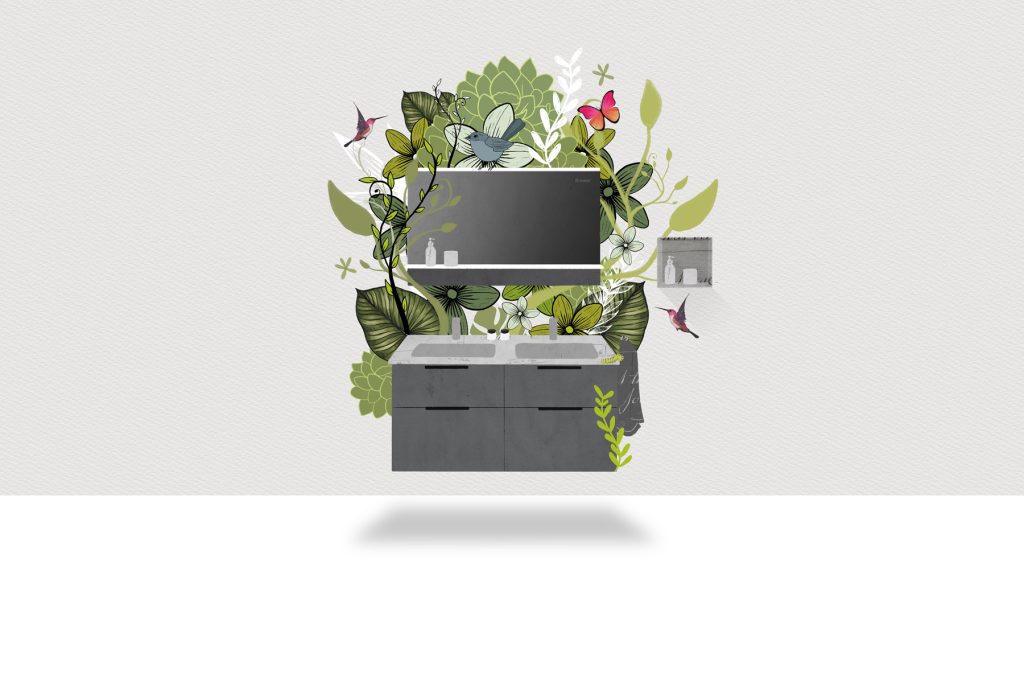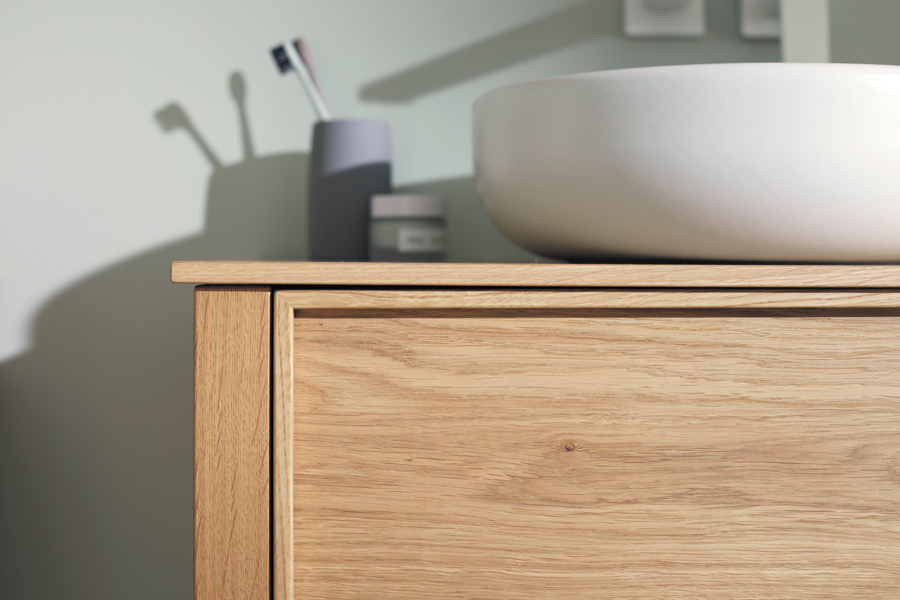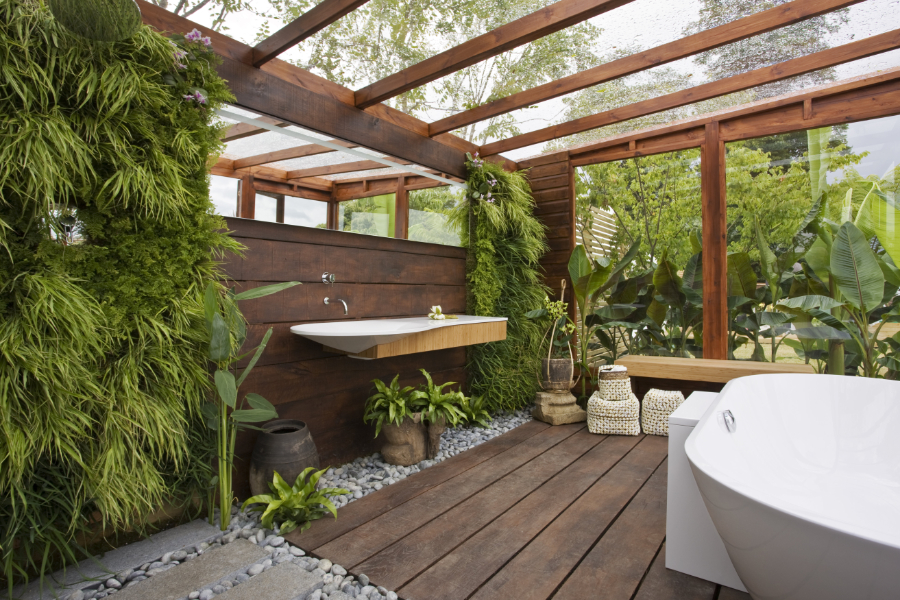burgbad: climate-neutral since 2016
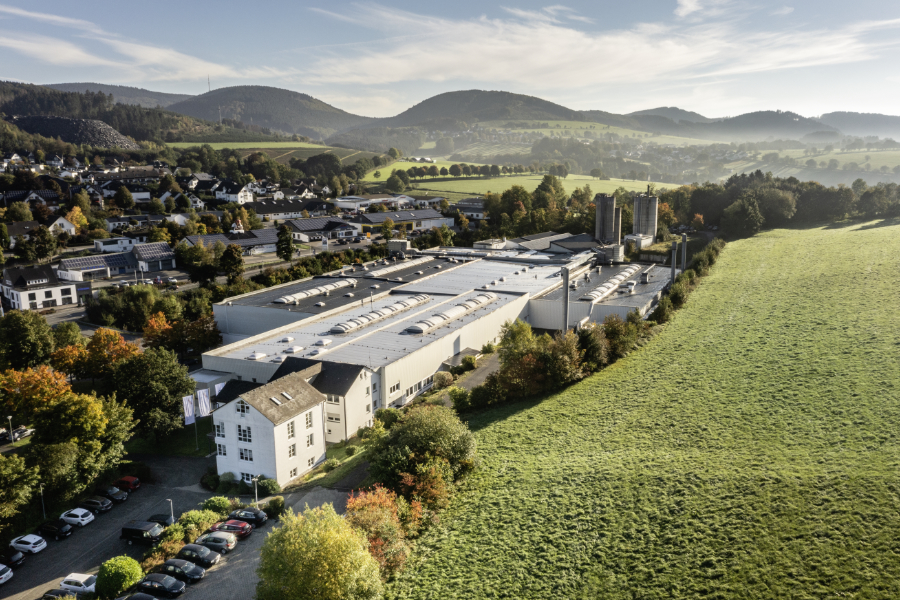
burgbad has been climate-neutral since 2016, when it became the first climate-neutral bathroom furniture manufacturer in the world. For us, climate commitment is a learning process in which we do more than identify potential for savings: through our participation in carefully selected offset schemes, we also support global projects that make a sustainable contribution to climate protection – in India, for instance.
In 2016, the German Quality Assurance Association for Furniture (DGM) founded the Climate Pact for the Furniture Industry as a consequence of the 21st UN climate conference in Paris. That same year, we became the first bathroom furniture manufacturer to join this climate pact for the German furniture industry. Ever since, our production operations have been climate-neutral as defined by the DGM criteria and certified by RAL (German Institute for Quality Assurance and Certification). Our efforts have been greatly helped by the fact that we introduced systematic sustainability management back in 2014.
That was the only reason why we were able to meet all the relevant requirements as soon as we joined the DGM Climate Pact in 2016, making us the world’s first-ever climate-neutral producer of bathroom furniture. What’s special about the DGM Climate Pact is that the first step consists of calculating the company’s carbon footprint; any reduction measures are voluntary. Then, in the second step, through reduction and compensation strategies, companies can obtain the Climate-Neutral Furniture Manufacturer label by offsetting their unavoidable carbon emissions – i.e. the remainder that cannot be reduced any further. That involves purchasing high-quality climate protection certificates. One certificate corresponds to one tonne of carbon.
Climate-neutral through carbon reduction
Voluntary carbon offsetting is both politically approved and meaningful. The transformation of our economic system towards greater sustainability needs the broad impact this practice has. Nevertheless, we believe it makes a difference whether a label certifying climate neutrality is obtained solely as a result of purchasing certificates – regardless of whether the buyer has reduced their own emissions – or whether the company itself makes an active effort to achieve climate neutrality.
Dr Susanne Steinhauer, burgbad’s head of sustainability management, explains the measures our company takes to protect the climate: “burgbad has made a very deliberate decision to comply with certain criteria on its way to climate neutrality. In the first stage, we calculated and verified our carbon footprint in line with the RAL and DGM criteria, and then reduced our emissions as much as possible in the second stage. Only in the third and final stage did we start offsetting the remaining, unavoidable emissions – we’ve been doing that since 2016. We specifically look for offset concepts that generate social co-benefits in emerging and developing countries.”
Promoting climate protection all over the world – for instance in India
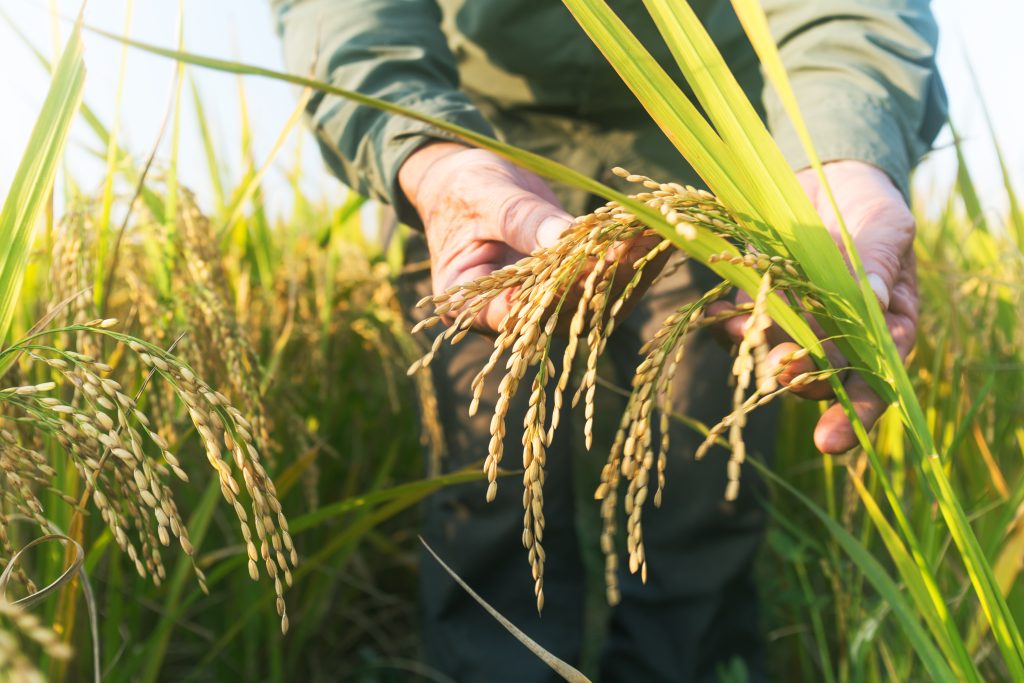
That’s why, rather than using its certificates to invest in projects like offshore wind farms in the North Sea, burgbad looks for alternatives with an added social value. As a member of the Development and Climate Alliance, our carbon offset purchases are deliberately channelled into projects that contribute to climate protection in emerging and developing countries, as well as creating employment and income opportunities for the local population.
“We will only get a grip on climate protection if we empower developing countries as well – when something actually happens on the ground and there are concrete benefits for the people there,” explains Steinhauer. That’s why, from 2018 to 2021, burgbad invested in Godawari Power and Ispat Limited (GPIL), a Gold Standard climate protection project in India. As a result, a 20 MW biomass power plant has gone into operation in Siltara, Raipur, which in turn creates local jobs and income opportunities. “Now the rice farmers can get a small amount of money for their crop waste (rice husks) instead of burning it, and contribute to the production of green energy in the process,” reports Steinhauer.
Continuous reduction of energy consumption and carbon emissions
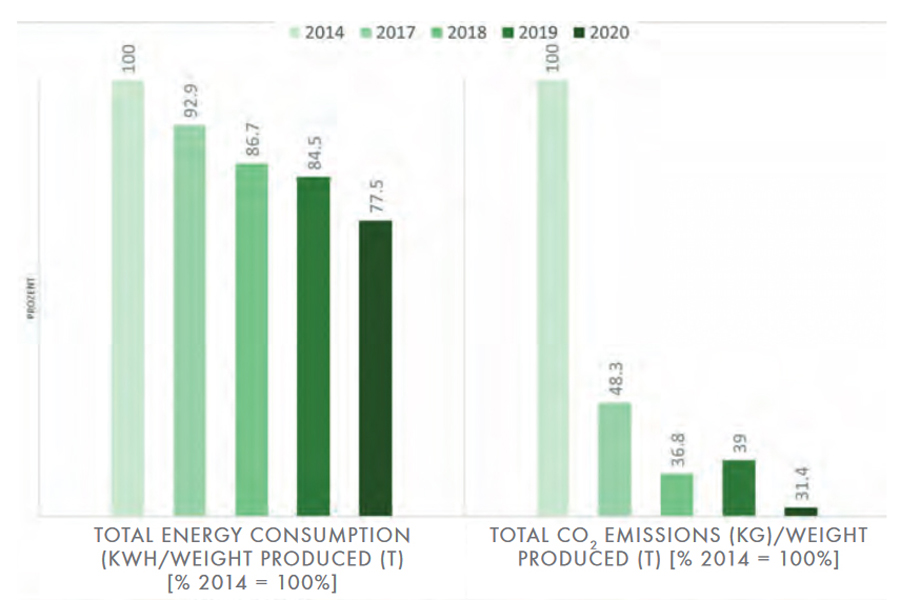
For anybody who wants to find out more about our climate protection activities, our latest sustainability report provides a good overview of the sustainability measures we implemented in the years 2018-2020 and what we have already achieved, especially with regard to climate protection: we far exceeded our self-imposed goal of a 10% reduction in energy consumption per unit produced by 2020 as compared to 2014, for example, ultimately achieving a saving of 22.5% (based on our eco-controlling system). We were also able to reduce carbon emissions per unit produced by 68.6% as compared to 2014, thus likewise exceeding the original goal (55%).
And besides lowering the company’s total energy consumption, the percentage of renewable energies in the energy mix has been continuously increased as well. According to our eco-controlling system, the renewable energies we purchased accounted for a share of 61.8% in 2020, half of which is attributable to purchased energy from renewable resources, the other half to biomass from scrap wood left over from production, which is used as an energy source for our plants in Greding and Schmallenberg.
Less travel and more e-mobility
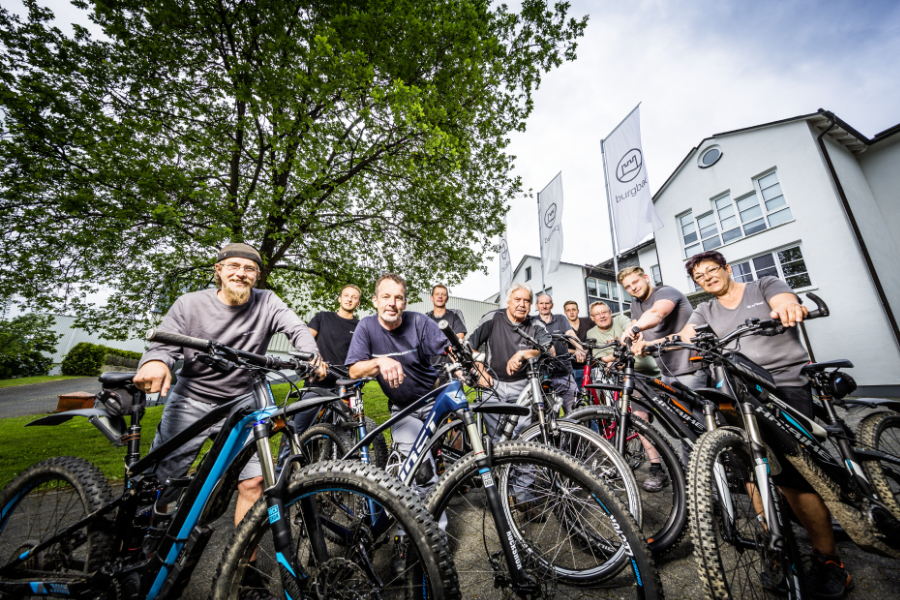
Because we strongly support the United Nation’s two degree target, we continue to look for areas with potential for reducing emissions. There are for instance plans for an efficiency and feasibility analysis, with the intention of clarifying whether it makes sense to switch our fleet to electric vehicles. We also want to increase the number of virtual meetings so as to reduce travel, and make more journeys by train rather than by car. We have been successively reducing air travel since 2016 and aim to continue doing so. Additionally, as in the past, unavoidable emissions will be offset.



